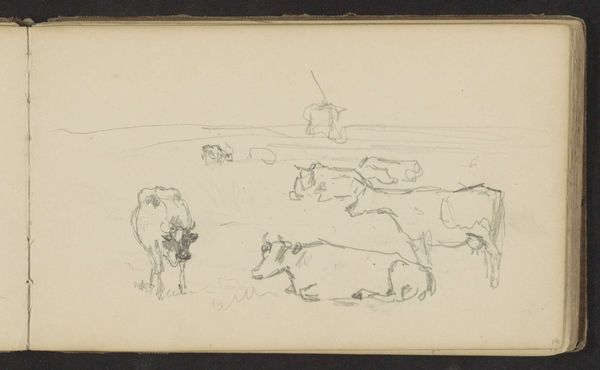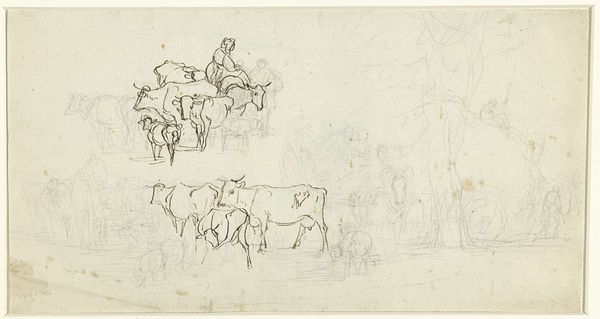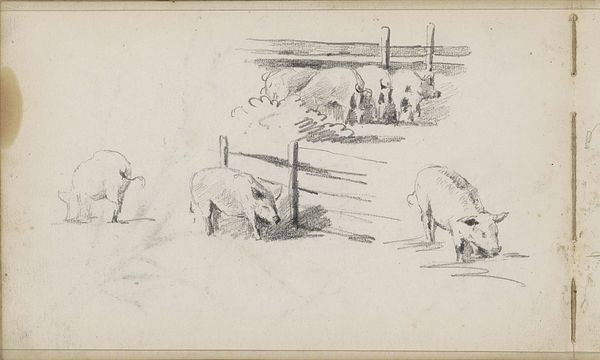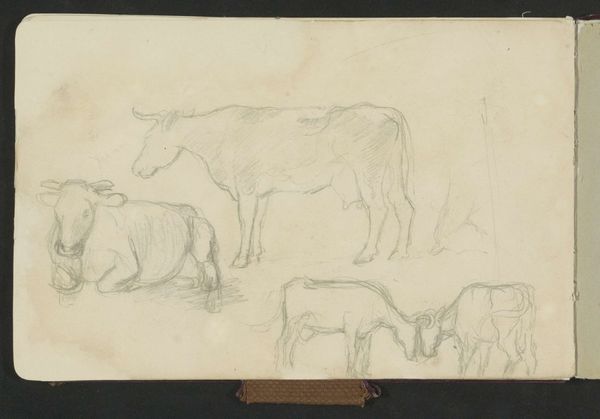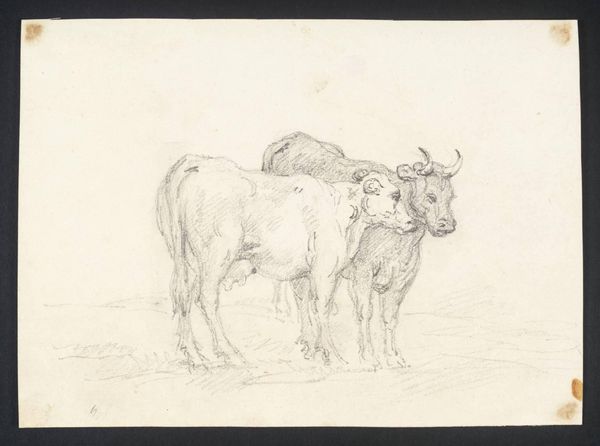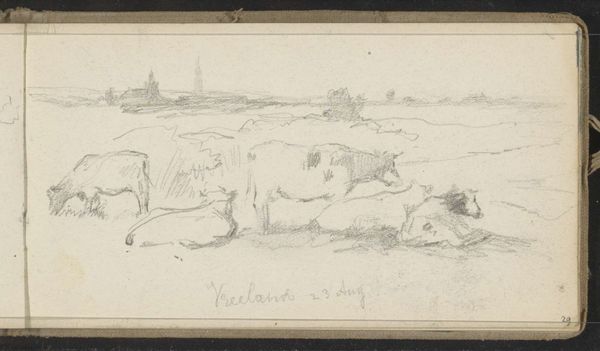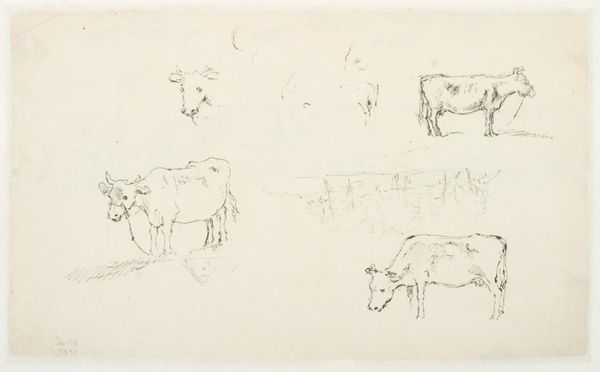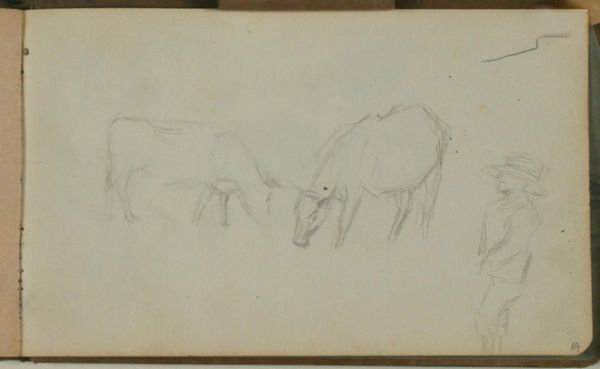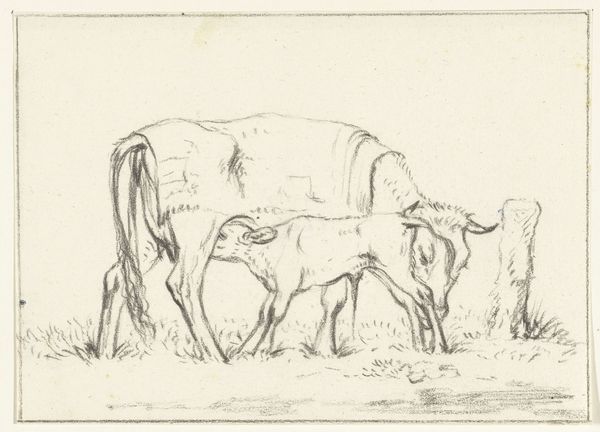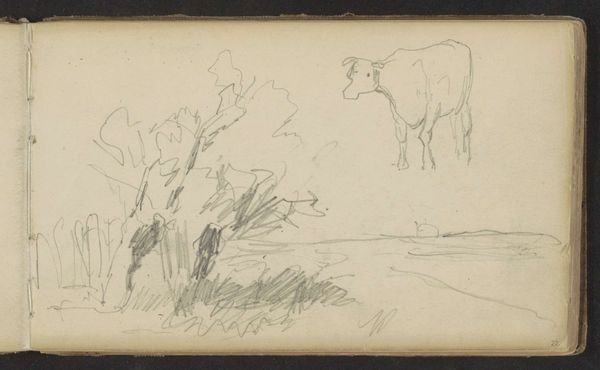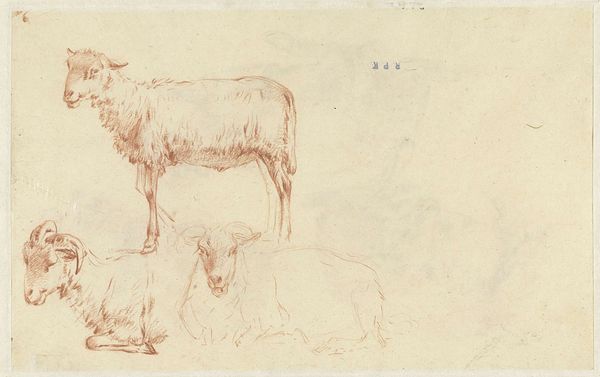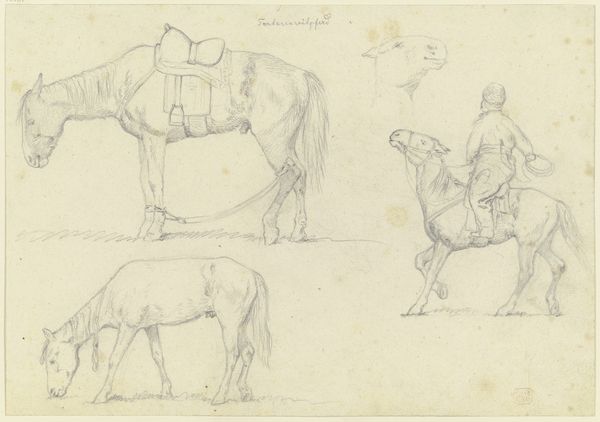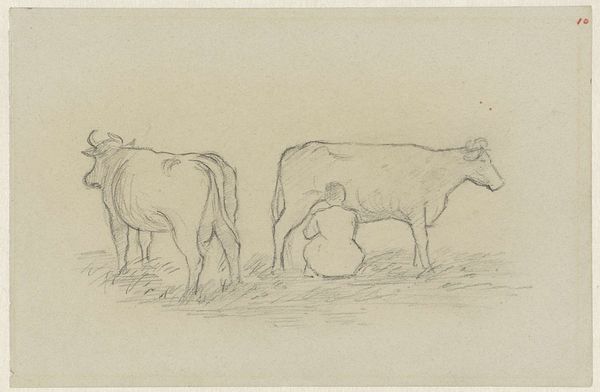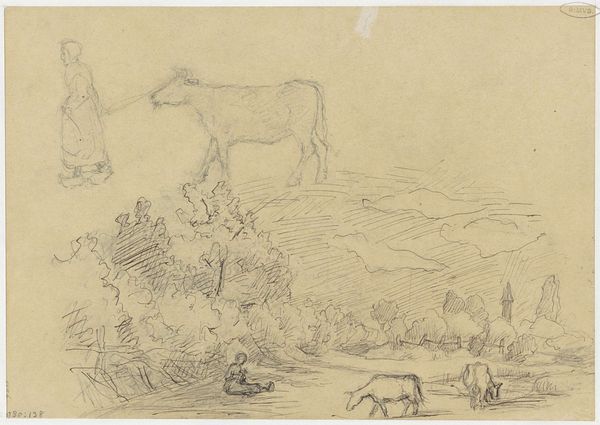
drawing, pencil
#
drawing
#
sketch book
#
landscape
#
folk-art
#
pencil
#
genre-painting
#
realism
Dimensions: height 104 mm, width 179 mm
Copyright: Rijks Museum: Open Domain
Editor: We’re looking at a pencil drawing by Willem Cornelis Rip, “Cows and a Figure in a Rowboat,” from 1895. It’s a page from a sketchbook, and it feels very immediate, capturing a slice of rural life. What stands out to you in this work? Curator: The rapid pencil strokes speak volumes about the labor involved in producing this image. This isn’t high art; it's a study, a visual record of Rip's observations. Note how the varying pressure of the pencil creates depth and form. Consider the availability and cost of paper and pencils at that time, and how this influenced artistic production and what subjects were worthy of documentation. Editor: So you're focusing on the materials and the process itself? Curator: Exactly. The very act of sketching like this points to the democratizing forces impacting art making. Prior to readily available and affordable materials, these mundane scenes may not have been preserved. Also note, there's a potential commentary on labor itself - the cows, the rower. One informs the other through the context of work and value. Editor: I hadn’t thought about it that way. It’s interesting to think about what makes something a subject worthy of being recorded. Curator: And worthy of preservation and, ultimately, our attention. Rip wasn't just passively observing; he was actively engaging with his environment through readily accessible materials. He transformed a mundane subject into art. This piece challenges that divide between "high art" and the working class that populates this art. What do you take away from that thought? Editor: It really broadens my view of what art can be and whose stories are worth telling. Thinking about the economic forces behind art really opens it up. Thanks! Curator: Agreed! It makes you ponder about the many artistic voices unheard because of access to material, hopefully inspiring us to continue examining assumptions that underly what's considered art, and whose stories remain absent from art history.
Comments
No comments
Be the first to comment and join the conversation on the ultimate creative platform.
